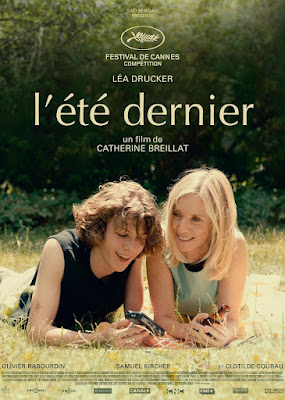Daaaaaalí!, one of two films that Quentin Dupieux made in 2023 – the stunning cultural satire Yannick being the other one – is neither a biopic of the enormously famous painter Salvador Dalí nor a homage to the maverick surrealist. Rather, it’s a quirky evocation of what he symbolized through his eccentric nature, grandiloquent persona, gigantic ego, mythical fame and distinctive artistic voice, which Dupieux – as the title joyously alludes to – captured using zany, ingenious, unpredictable and deliciously confounding absurdism that’s representative of his colourful subject. Invoking the form and tenor of Buñuel’s extraordinary surrealist satires, the film – in an oddball stroke of creative expression – has five separate actors boisterously playing Dalí (Édouard Baer, Gilles Lellouche, Jonathan Cohen, Pio Marmaï, Didier Flamand), with each in different scenarios, at different times, signifying different ages, but on occasions also interchangeably and even simultaneously. This latter aspect reminds one of Haynes’ I’m Not There where six different actors had portrayed Bob Dylan. However, unlike both Buñuel and the Haynes, its farcical bursts and formal adventurousness were an end in itself, thus making it not just funny and farcical, but also, quite unapologetically, frothy and frivolous. The movie’s most basic premise involved a naïve but diligent journalist (Anaïs Demoustier) trying to interview the mercurial artist, but her ardent efforts are repeatedly foiled for increasingly hilarious, incongruous and silly reasons, ranging from Dalí’s infuriating obsession with “caméra cinématographique” and his maddening vanity, to – in arguably the whimsical script’s most madcap component – a seemingly endless, infinitely digressive and impassively outlandish dream-within-dream recounted by an unassuming priest over a simple dinner. The nutty series of events are accompanied by an irresistible score by former Daft Punker Thomas Bangalter.
Director: Quentin Dupieux
Genre: Comedy/Surrealist Comedy
Language: French
Country: France





















